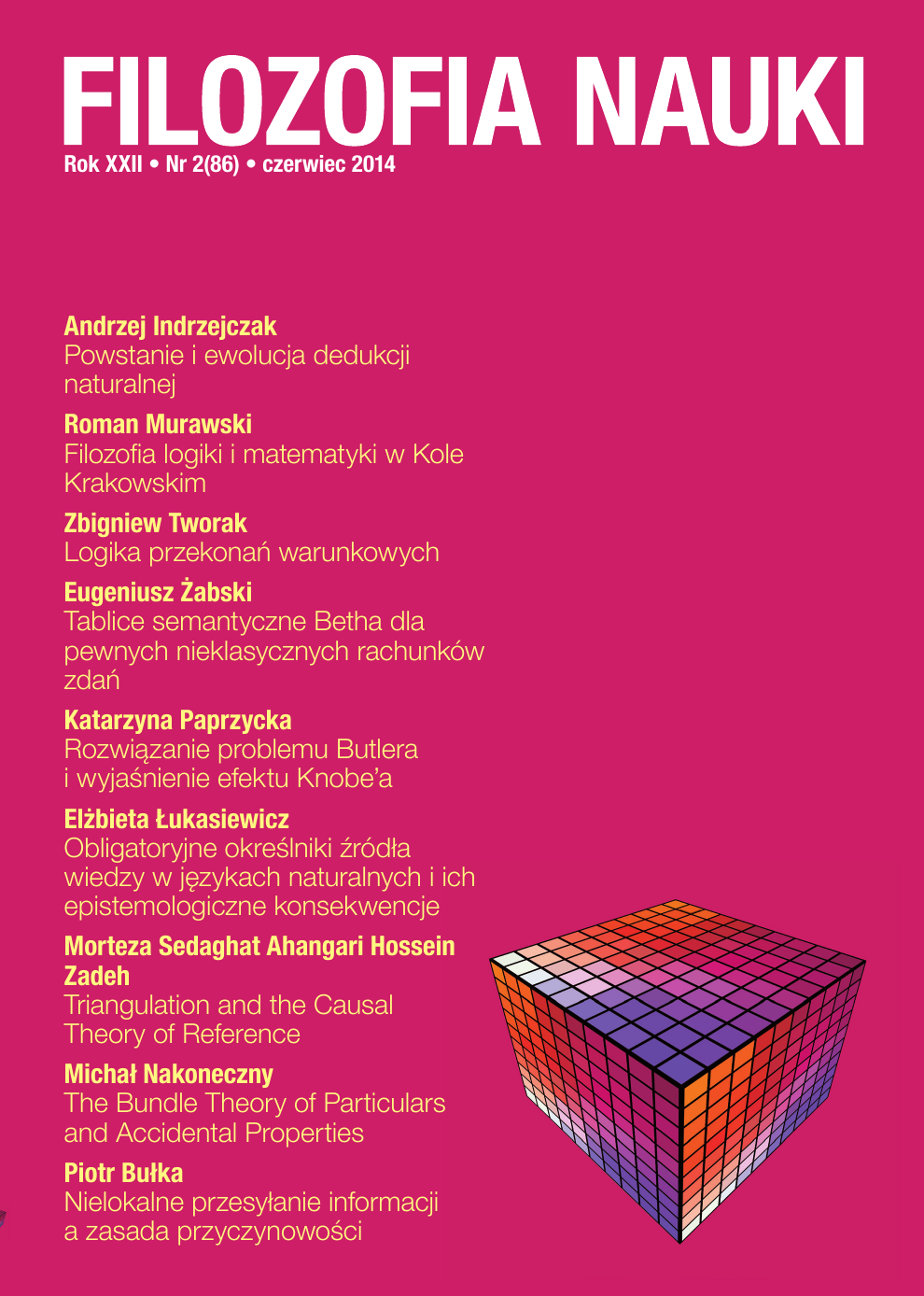Obligatoryjne określniki źródła wiedzy w językach naturalnych i ich epistemologiczne konsekwencje
Słowa kluczowe:
evidentials, information-source markers, justification of beliefs, internalism, externalism, basic beliefs, epistemology of testimonyAbstrakt
The paper is concerned with evidentials, i.e. information-source markers, in natural languages and their influence on our cognition, communication, and justification of our beliefs. In the first part, we present the functioning of different systems of evidentials in the world's languages and discuss in brief how the grammatical structure of different non-Indo-European languages compels their speakers to code the source of information (visual perception, non-visual sensory perception, inference, hearsay, etc.) in practically every declarative sentence. The second part of the paper addresses the issue of how some epistemological ideas connected with the problem of justification of our beliefs, such as internalism, externalism, justified basic beliefs, and epistemology of testimony, could be reinterpreted in the light of obligatory grammatical evidentiality.Pobrania
Opublikowane
2014-06-01
Jak cytować
Łukasiewicz, E. (2014). Obligatoryjne określniki źródła wiedzy w językach naturalnych i ich epistemologiczne konsekwencje. Filozofia Nauki, 22(2), 97–115. Pobrano z https://www.fn.uw.edu.pl/index.php/fn/article/view/758
Numer
Dział
Artykuły















 Filozofia Nauki | ISSN 1230-6894 | e-ISSN 2657-5868
Filozofia Nauki | ISSN 1230-6894 | e-ISSN 2657-5868